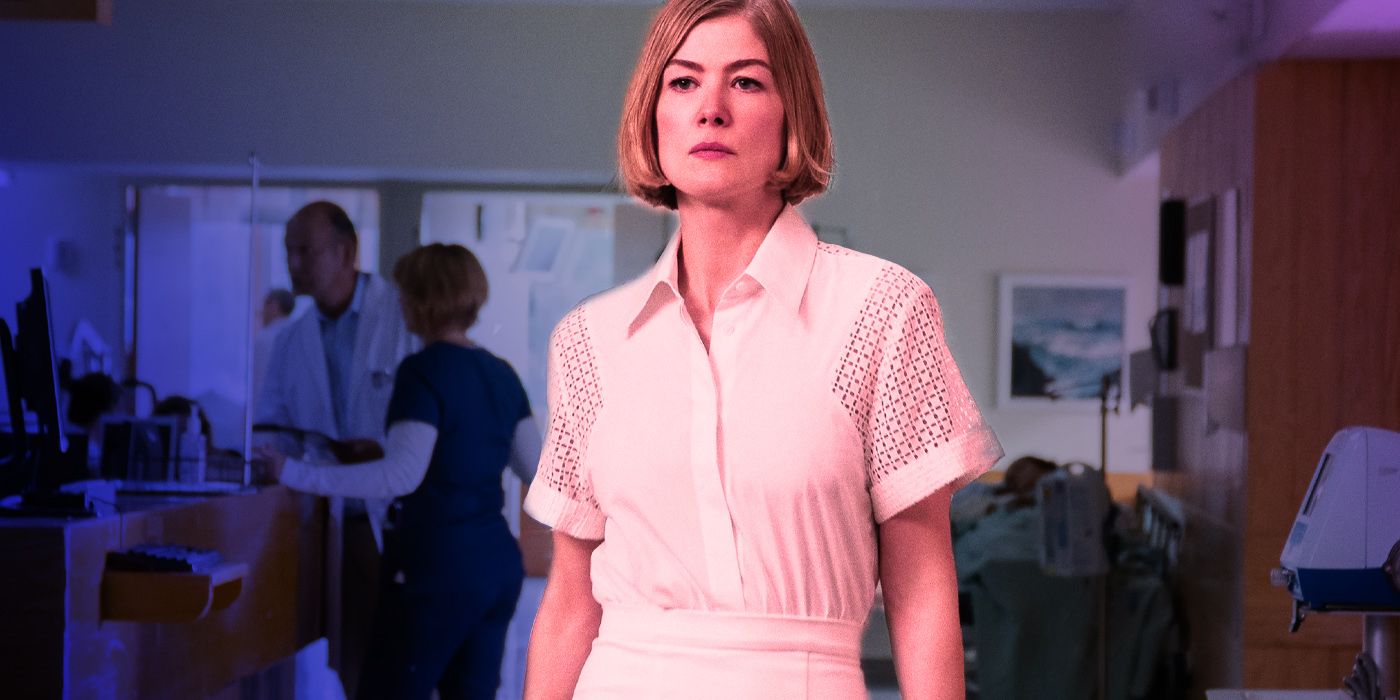Netflix's new darkly comic thriller, I Care a Lot, is absurd in a lot of ways, but the guardian laws and scams it depicts are terrifyingly true to life. The movie follows Marla Grayson, a professional legal guardian of the elderly who colludes with a doctor to find marks for her scam. She discovers Jennifer Peterson, a rich old woman who lives alone, and holds an emergency hearing with a judge who appoints Grayson the legal guardian. Grayson then places Peterson into a nursing facility and sells her property; however, she meets her match when she discovers the seemingly innocuous woman has powerful connections.
The guardian laws shown in I Care a Lot exist in real life, and they serve an important function for assessing and providing adult care for those who are unable to do so for themselves. There are various reasons why one could become determined incapable of making decisions for themselves: their judgment could be impaired, they might not be able to remember to take their medications, or they could be physically incapable of tasks required for personal hygiene, feeding themselves, etc. In this event, the court will appoint a guardian to take care of them. The vast majority of guardians are family members who truly want to do what's best for their relative, and, among the approximately 20% who are not related, the majority are acting in the best interests of their wards.
With that said, there are predators like Grayson who will exploit the elderly for their own personal gain. As shown in I Care a Lot, having full legal guardianship over someone means that the ward is essentially stripped of their rights. A guardian has the final say on where the ward lives, their diet, their medication and medical treatment, their visitors, and even their finances. Once a guardian is appointed, it's almost impossible to remove them without a lengthy legal battle. Loving relatives are characterized as exploitative grifters, police don't consider it their jurisdiction, and many judges are apathetic or unfamiliar with the laws.
The question isn't whether the story in I Care a Lot has happened but how often. In 2017, a New Yorker article, "How the Elderly Lose Their Rights," details a scene eerily similar to the sequence in the movie: An old couple is enjoying their morning when a strange woman claiming to be their legal guardian shows up with a court order and tells them that they are moving to an assisted living facility. If they do not comply, she would call the cops. Once they are gone, the guardian sells their house and most of their assets to pay herself. These were not the only victims of April Parks, the real-life criminal counterpart to the fictional Marla Grayson. Parks had filed an emergency ex-parte petition which allowed her to appear before the court without notifying the couple. She had multiple victims with dubious diagnoses of dementia and other ailments who she'd overmedicated and bilked out of their funds. And like in the film, she couldn't have done it without an apathetic judge who bought into her grift and awarded her guardianship.
Though Parks was caught, it's unknown exactly how many like her are out there. According to the Senate Special Aging Committee, there's a best guess estimation of 1.3 million American adults under the care of guardians, controlling about $50 billion dollars worth of assets — but the data is scant and most states don't track the funds. It's a severely underfunded system with virtually no oversight. A significant number of nonprofessional guardians aren't required to undergo financial or criminal background checks. So how can one protect themselves or their loved ones from the likes of Marla Grayson in I Care a Lot? While it won't completely protect against exploitation, giving someone trustworthy power of attorney in the event of incapacitation, and having an advanced medical directive, helps. Unlike Mrs. Peterson in I Care a Lot, mob connections probably won't be enough to save one from a long uphill legal battle.


